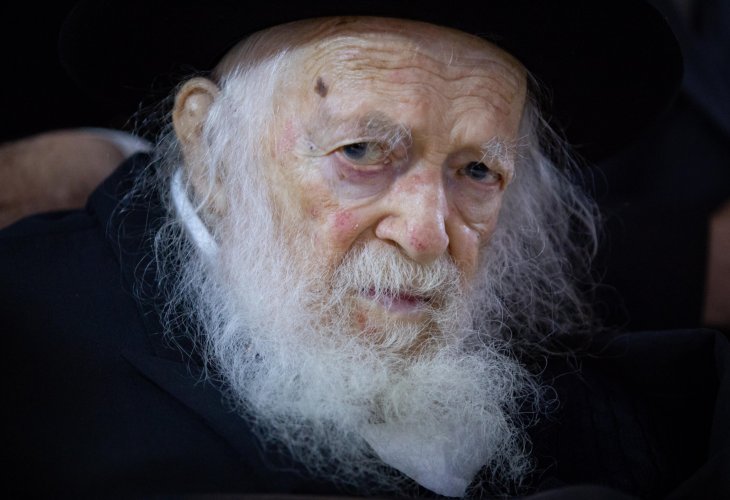Personal Stories
The Names That Revealed Truth: Rabbi Kanievsky’s Miraculous Insight
Three moving stories that show Rabbi Kanievsky’s deep insight and how a name can reveal a soul’s hidden truth.
 Rabbi Chaim Kanievsky (Photo: Flash 90)
Rabbi Chaim Kanievsky (Photo: Flash 90)Rabbi Chaim Kanievsky, one of the most respected Torah leaders of our generation, was known not only for his immense Torah knowledge but also for his incredible spiritual insight and heart of kindness. Many people came to him seeking blessings, answers, and clarity. Sometimes, what he said left people speechless—especially when he saw deeper than anyone expected.
One such moment happened when a young man, newly exploring his Jewish roots, came to Rabbi Kanievsky for a blessing. The Rabbi asked him his name. “Nimrod,” the boy answered. The Rabbi looked at him gently and said, “Nimrod? Why? Shealtiel!” Those present knew that the name “Nimrod”—the name of a rebellious biblical king—was not one the Rabbi liked to hear. But they were surprised: why did he suggest “Shealtiel,” such a rare name?
The young man went home puzzled but inspired. He told his parents, “From now on, I want to go by the name Shealtiel.” His mother’s face turned pale. “What do you mean ‘from now on’? That’s the name we gave you at your brit (circumcision)! But later we felt it was too old-fashioned, so we changed it to Nimrod.”
The boy had no memory of this. Yet somehow, Rabbi Kanievsky had known the truth—he had called the young man by the name of his soul.
Another astonishing story involves a man who came to the Rabbi in tears, asking for a segulah—a spiritual aid—to help heal his very sick father. “Should we add a name to help bring him healing?” the man asked. Rabbi Kanievsky replied: “Call him Antiochus.” The man was stunned. “Antiochus?” he repeated. The Rabbi then offered another suggestion: “Then Achashverosh.” Both names are of infamous non-Jewish kings who stood against the Jewish people. Why would the Rabbi suggest such names?
The man went home heartbroken. But when he told his father what Rabbi Kanievsky had said, his father began to cry. “I never told anyone this,” he said softly, “but I converted to Judaism many years ago without undergoing brit milah. My conversion was not halachically valid… I’m not actually Jewish.” Rabbi Kanievsky had sensed the truth with divine clarity—and with his quiet suggestion, had opened a path for the man to make things right.
A final story, filled with humility and deep care, was told by Rabbi Reuven Reich, the son-in-law of the Rosh Yeshiva of Lakewood. Many years ago, a young boy who loved photographing great Torah scholars visited Rabbi Kanievsky. One day, he entered the Rabbi’s home and saw a rare sight: the Rav was feeding a stray cat, showing kindness to one of God’s creatures.
The boy quickly snapped a picture, but the Rabbi noticed and gently asked him to stop. The boy didn’t. After a few more pictures, Rabbi Kanievsky—usually calm—raised his voice. “How rude! I told you to stop!” Frightened, the boy opened the film and burned the photos.
Twenty-five years passed. That boy grew up, got married, and raised a family. One day, before his son’s bar mitzvah, he returned to Rabbi Kanievsky’s home. As soon as he stepped into the room, the Rabbi looked at him and said, “I’ve been waiting to see you for 25 years. You’re the boy who photographed me back then. I wanted to ask you for forgiveness for getting upset.”
Imagine that. A Torah giant, who spent nearly every moment immersed in learning, remembered a single moment with a child from decades earlier—and carried it in his heart all those years, just to say sorry.
These stories remind us not only of the holiness of great rabbis like Rabbi Kanievsky, but of the deep sensitivity and care that come with true Torah greatness. They also show how names—often thought of as just labels—can connect to the soul in powerful ways. In Judaism, names aren’t random. They are part of who we are. And when used with wisdom and love, as Rabbi Kanievsky did, they can help a person return to their true self.

